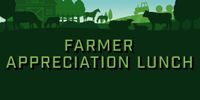The Canadian Foodgrains Bank (CFGB) hosts learning tours in the many countries they serve, hoping to send out a team at least once a year. They are now trying to accommodate two tours each year.
The first for 2024 is a learning tour to the country of Nepal, where ten Canadians will travel through Dubai to arrive in Kathmandu, the capital city of Nepal on Saturday, February 10th to spend the next two weeks travelling to various rural communities to learn first-hand what those projects are all about.
Golden West reporter Betty Sawatzky, who is based at CJRB Radio 1220 in Boissevain, is joining the CFGB team to Nepal to learn about the four farming projects currently active in Nepal.
"Through sharing the stories of the Foodgrains Bank through our newsroom I have come to appreciate this organization in a much deeper way," shares Sawatzky. "We focus more on the local grow projects, both in Killarney and the Boissevain-Whitewater project at Fairfax, and through watching these people come together every harvest to invest their time, their money and their passions into help to stop world hunger is truly humbling."
"What's amazing to me each year is to see the number of combines and trucks and tractors-trailers that show up on harvest day, and these are farmers who are taking time away from their own fields to get the CFGB grain in the bins," she adds, "and then to see the community members, sponsors and local business representatives, support the project along with the volunteers who help provide the noon meal. It's truly a harvest celebration to support this incredible organization."
Money raised through the grow projects and other fundraisers is sent over to partnering organizations at these other countries to help most often with projects that deal with food sustainability, and most often in the rural areas. However, farming practices are challenged by severe drought or torrential rains and landslides. Other factors include political tensions, fragility within the country's dynamics, depleting coping mechanisms when there are natural disasters, and the inability to adapt to the severe weather systems they're experiencing.
In Nepal's case the population of the country is approximately 30.5 million people, and yet the country is a fraction of the size of Manitoba. If you took a swathe of land from Killarney to Emerson, and then straight north to Thompson, that rectangle is approximately the size of the country of Nepal.
Compared to Manitoba's 1.4 million residents, we can't imagine 30.6 million people living in only 57,000 square miles.
So, with this many people, how do you find enough arable land to grow a crop, especially when the climate conditions challenge you at every turn?
"In these rural communities they have families that can't grow enough food for their families, and if they can then it's barely enough, certainly not enough to bring the excess to market to make money to purchase more food," says Sawatzky. "So, the purpose of the learning tour is to better understand these different projects on how the CFGB is partnering with these international organizations to help these people with growing their own food, marketing their own food, and providing for their families and ultimately their communities."
"Then we are to come home and share their story, to share with our communities where their donations are going, but also to bring more awareness to the plight of world hunger."
"The last statistic I heard was that there are 783 million people facing hunger, and 40 million of those people are at emergency levels. Thirty-nine million is the population of Canada," she adds.
"I hope to understand the depths of these people's plight, to better understand the CFGB projects and their collaborative efforts with other organizations, and to come home and share their story."
Visit the CFGB website, and especially the Nepal information page by clicking HERE!
Please listen to more with Betty Sawatzky and Chris Sumner on the Canadian Foodgrains Bank Learning Tour to Nepal, travelling from February 8-24th.

















